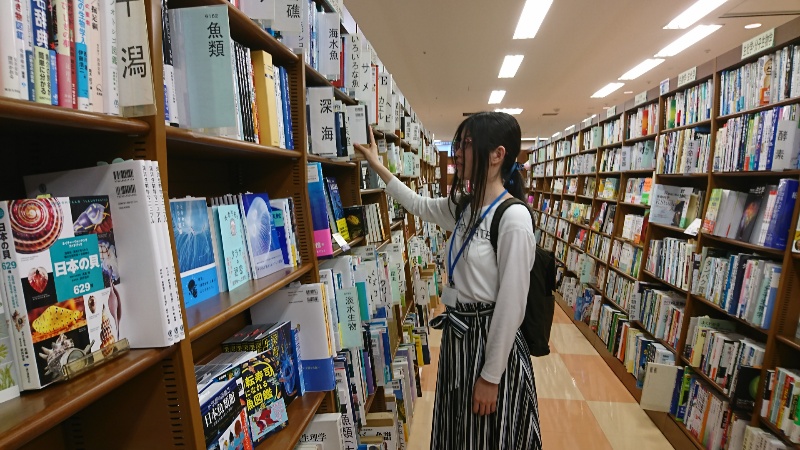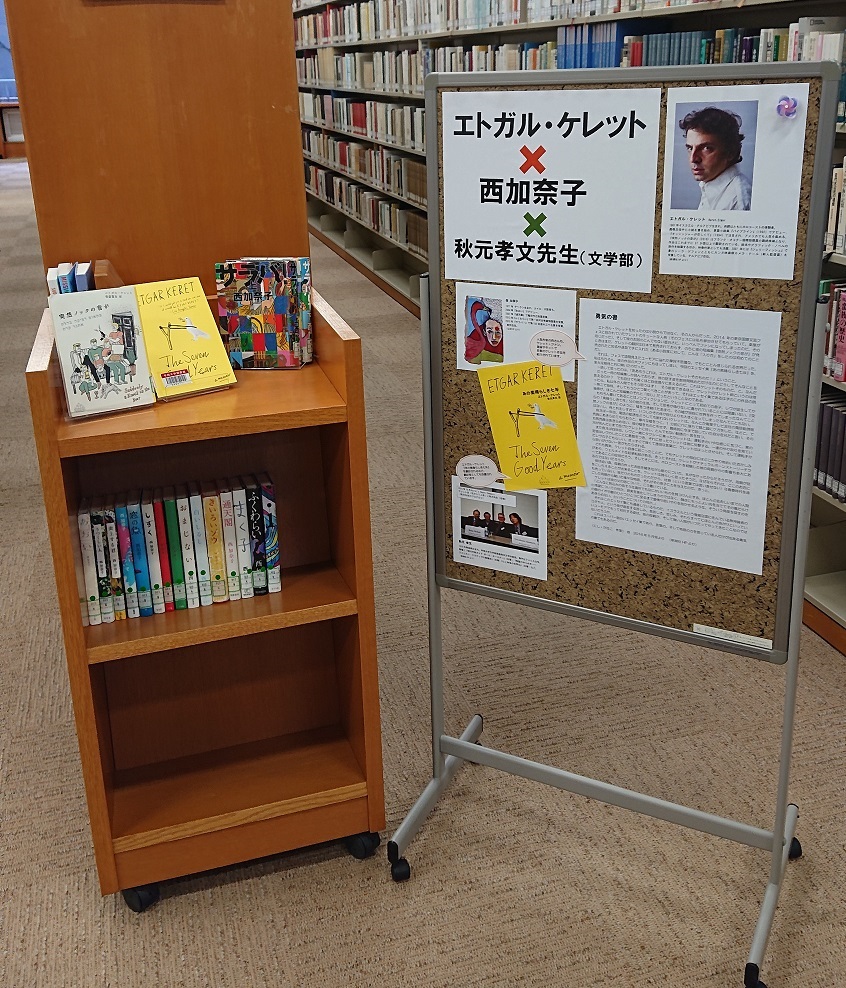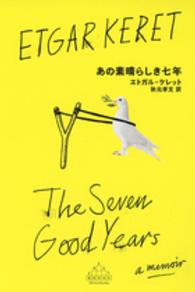マネジメント創造学部 西田遥葵さんが、マネジメント創造学部 Ryan Richardson先生に
インタビューを行いました。(KONAN ライブラリ サーティフィケイト)
Q1: What kind of books do you like to read?
A1: That’s really difficult. Because I enjoy reading mystery novels but my favourite book is not a mystery and mostly I don’t read mystery. Mostly I read history, I really enjoy history also but I think one I enjoy the most is mystery novels. So my favourite style of book is mystery novels but I don’t read them often. I usually read history books and other kinds of non-fiction books. I rarely read fiction but my favourite book is fiction.
Q2:What kind of books did you read when you were university student?
A2. Mostly I read textbooks. I did six majors so mostly I was reading any kind of textbooks. Classes I didn’t take I would buy used books for. During a holiday I read textbooks on other subjects that I wasn’t studying like sociology. I didn’t have time to take so many sociology classes so I would get a textbook for a class but I wouldn’t take the class I just read a books during summer holiday and winter holiday.When I was a university student, I mostly read history, philosophy, sociology sometimes psychology textbooks.
Also I always tried to read at least one classic novel of literature. So I would read other classic stories, French authors Russian authors and Shakespeare or something like that. That was my free time reading. I was try to read at least one classic book and few textbooks every holiday. During a school year, I didn’t read anything outside of class. Because I was doing my history and philosophy majors had a lot of reading. I usually didn’t read for a pleasure during a school year. Usually at that time I read some kind of modern fiction but also good literature. For discussion of modern books so I tried to read those on holiday because my feeling is always that many students and teachers have better range of reading than I did. So I always thought that if I just read a lot of good materials then I would catch up to other students. Little bit disadvantage for me when I was doing 6 majors all the time. Some students doing only one major and they had a lot of time to read one major, they were studying only that so their knowledge is wider than mine I felt. So I was always trying to keep up with that. By the time I finished university, I was pretty good at discussing important literature, subjects specific literature and modern literature because I worked very hard.
Q3: Do you have any recommend book for students?
A3: My idea is that students should read what they are interested in but the best of what they are interested in. I think every student should probably read good history. Because history helps with everything. If you study business you need to really understand business history. It helps you to make a better decision about business. If you are interested in any subjects, psychology, sociology, economics…is really helpful to have a basic understanding of the history of your interest. Even if you are interested in just sports, the history of it is really interesting and exciting sometimes, baseball history or boxing history is really really interesting for me anyway. Any kind of history as long as good history. The good history has to look at good points and bad points of a story. If they don’t tell what happened and tell what they wished happen then that’s not a good history. Only tell the one side is not a good history, that’s twisted history a little bit. You need to tell good and bad. That’s better history.The answers are probably somewhere in the middle, good history needs to tell the middle point also I think. Understanding history is really important to understanding the future. We can’t understand the future without understanding the past. So I think I would advise to student to read history.
Impression
I often lost my way to find good history books because there are so many contradictions and confusing. But through this interview, I realize that it is important to read good points and bad points. And I think his advise is meaningful to all students who like reading and not. History sounds difficult but history is more familiar to us like sports history. I want them to read this interview and read history for life.
(インタビュアー:マネジメント創造学部 西田遥葵)



